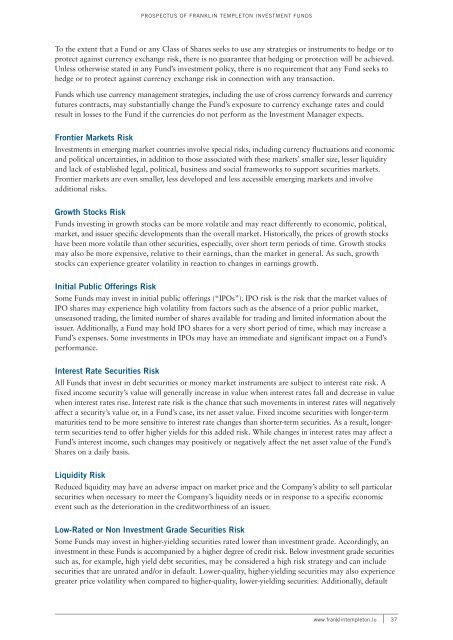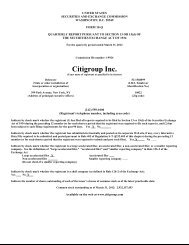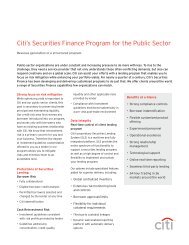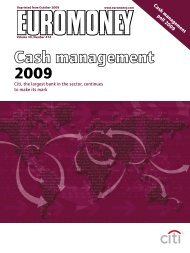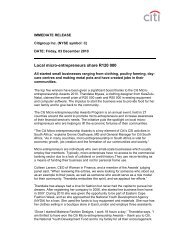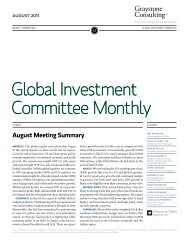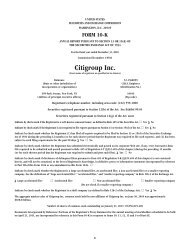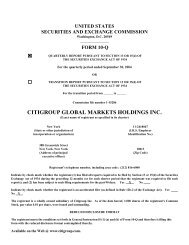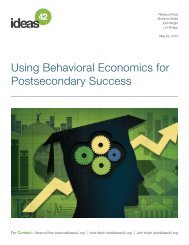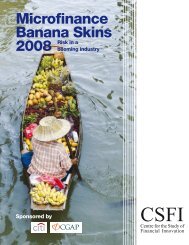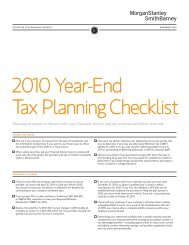FRANkLiN TEMPLETON INVESTMENT FUNDS - Citibank
FRANkLiN TEMPLETON INVESTMENT FUNDS - Citibank
FRANkLiN TEMPLETON INVESTMENT FUNDS - Citibank
Create successful ePaper yourself
Turn your PDF publications into a flip-book with our unique Google optimized e-Paper software.
PROSPECTUS OF FRANKLIN <strong>TEMPLETON</strong> <strong>INVESTMENT</strong> <strong>FUNDS</strong><br />
To the extent that a Fund or any Class of Shares seeks to use any strategies or instruments to hedge or to<br />
protect against currency exchange risk, there is no guarantee that hedging or protection will be achieved.<br />
Unless otherwise stated in any Fund’s investment policy, there is no requirement that any Fund seeks to<br />
hedge or to protect against currency exchange risk in connection with any transaction.<br />
Funds which use currency management strategies, including the use of cross currency forwards and currency<br />
futures contracts, may substantially change the Fund’s exposure to currency exchange rates and could<br />
result in losses to the Fund if the currencies do not perform as the Investment Manager expects.<br />
Frontier Markets Risk<br />
Investments in emerging market countries involve special risks, including currency fluctuations and economic<br />
and political uncertainties, in addition to those associated with these markets’ smaller size, lesser liquidity<br />
and lack of established legal, political, business and social frameworks to support securities markets.<br />
Frontier markets are even smaller, less developed and less accessible emerging markets and involve<br />
additional risks.<br />
Growth Stocks Risk<br />
Funds investing in growth stocks can be more volatile and may react differently to economic, political,<br />
market, and issuer specific developments than the overall market. Historically, the prices of growth stocks<br />
have been more volatile than other securities, especially, over short term periods of time. Growth stocks<br />
may also be more expensive, relative to their earnings, than the market in general. As such, growth<br />
stocks can experience greater volatility in reaction to changes in earnings growth.<br />
Initial Public Offerings Risk<br />
Some Funds may invest in initial public offerings (“IPOs”). IPO risk is the risk that the market values of<br />
IPO shares may experience high volatility from factors such as the absence of a prior public market,<br />
unseasoned trading, the limited number of shares available for trading and limited information about the<br />
issuer. Additionally, a Fund may hold IPO shares for a very short period of time, which may increase a<br />
Fund’s expenses. Some investments in IPOs may have an immediate and significant impact on a Fund’s<br />
performance.<br />
Interest Rate Securities Risk<br />
All Funds that invest in debt securities or money market instruments are subject to interest rate risk. A<br />
fixed income security’s value will generally increase in value when interest rates fall and decrease in value<br />
when interest rates rise. Interest rate risk is the chance that such movements in interest rates will negatively<br />
affect a security’s value or, in a Fund’s case, its net asset value. Fixed income securities with longer- term<br />
maturities tend to be more sensitive to interest rate changes than shorter- term securities. As a result, longerterm<br />
securities tend to offer higher yields for this added risk. While changes in interest rates may affect a<br />
Fund’s interest income, such changes may positively or negatively affect the net asset value of the Fund’s<br />
Shares on a daily basis.<br />
Liquidity Risk<br />
Reduced liquidity may have an adverse impact on market price and the Company’s ability to sell particular<br />
securities when necessary to meet the Company’s liquidity needs or in response to a specific economic<br />
event such as the deterioration in the creditworthiness of an issuer.<br />
Low- Rated or Non Investment Grade Securities Risk<br />
Some Funds may invest in higher- yielding securities rated lower than investment grade. Accordingly, an<br />
investment in these Funds is accompanied by a higher degree of credit risk. Below investment grade securities<br />
such as, for example, high yield debt securities, may be considered a high risk strategy and can include<br />
securities that are unrated and/or in default. Lower- quality, higher- yielding securities may also experience<br />
greater price volatility when compared to higher- quality, lower- yielding securities. Additionally, default<br />
www.franklintempleton.lu 37


